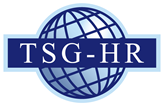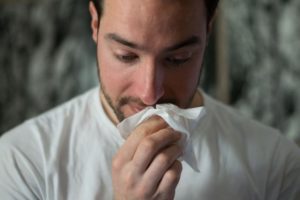Over the past few days I have been inundated for information on how to be proactive when dealing with the possible pandemic known as coronavirus. Our team put together a brief overview/guide of the current and accepted practices for talent management in this difficult time. Please be advised, we are not doctors and are not dispensing medical information. We strongly encourage everyone to keep your teams informed and aware to minimize fear and rumors. Sadly, this will probably get worse before it gets better. By taking definitive action now, you can minimize the impact to you and your teams.
Known Myths:
- You must disinfect packages from China and affected areas before opening – False
- A mask will prevent you from getting the virus – False
- There is a vaccine and it is ready to be dispensed – False
- Children and the elderly are the ones primarily affected by the virus – False
- Getting the virus is an immediate death sentence – False
- Only washing hands will prevent being infected – False
- This virus will go away after the normal flu season has ended – Reports indicate this is not likely
Known Truths:
- Those with preexisting conditions or compromised immune systems will be impacted harder by this virus – True
- The virus is in the US and will be active in every state – True
- The business sectors most likely to be affected by the virus are healthcare, those with regular contact with the public, and the service industry – True
- Major cities and communities with transitory communities will be affected the hardest – True
Symptoms may appear 2-14 days after exposure: They appear as…
- Fever
- Cough
- Shortness of breath
General Q&A
What is it?
A novel coronavirus is a new coronavirus that has not been previously identified. The virus causing coronavirus disease 2019 (COVID-19), is not the same as the coronaviruses that commonly circulate among humans and cause mild illness, like the common cold.
How do I prevent the spread of this virus?
There is currently no vaccine to prevent coronavirus disease 2019 (COVID-19). The best way to prevent illness is to avoid being exposed to this virus. However, as a reminder, CDC always recommends everyday preventive actions to help prevent the spread of respiratory diseases, including:
- Avoid close contact with people who are sick.
- Avoid touching your eyes, nose, and mouth.
- Stay home when you are sick.
- Cover your cough or sneeze with a tissue, then throw the tissue in the trash.
- Clean and disinfect frequently touched objects and surfaces using a regular household cleaning spray or wipe.
- Follow CDC’s recommendations for using a facemask.
- CDC does not recommend that people who are well wear a facemask to protect themselves from respiratory diseases, including COVID-19.
- Facemasks should be used by people who show symptoms of COVID-19 to help prevent the spread of the disease to others.
- Wash your hands often with soap and water for at least 20 seconds, especially after going to the bathroom; before eating; and after blowing your nose, coughing, or sneezing.
- If soap and water are not readily available, use an alcohol-based hand sanitizer with at least 60% alcohol. Always wash hands with soap and water if hands are visibly dirty.
What else can I do for the teams?
- Provide hand sanitizer/tissue at each public gathering area and workstation. Have an ample supply of personal hand sanitizer for those to carry with them
- Prevent unnecessary travel. Use technology-based platforms, such as video web chats or conference calls to conduct business
- Allow those that are not mission critical to work, if possible, from home.
What if a team member does get sick or thinks they are getting sick? – Send home or keep them at home, then…
- Stay home except to get medical care
- People who are mildly ill with COVID-19 are able to isolate at home during their illness. You should restrict activities outside your home, except for getting medical care. Do not go to work, school, or public areas. Avoid using public transportation, ride-sharing, or taxis.
- Separate yourself from other people and animals in your home
- People: As much as possible, you should stay in a specific room and away from other people in your home. Also, you should use a separate bathroom, if available.
- Animals: You should restrict contact with pets and other animals while you are sick with COVID-19, just like you would around other people. Although there have not been reports of pets or other animals becoming sick with COVID-19, it is still recommended that people sick with COVID-19 limit contact with animals until more information is known about the virus. When possible, have another member of your household care for your animals while you are sick. If you are sick with COVID-19, avoid contact with your pet, including petting, snuggling, being kissed or licked, and sharing food. If you must care for your pet or be around animals while you are sick, wash your hands before and after you interact with pets and wear a facemask.
- Call ahead before visiting your doctor
- If you have a medical appointment, call the healthcare provider and tell them that you have or may have COVID-19. This will help the healthcare provider’s office take steps to keep other people from getting infected or exposed. If team member does not have access to healthcare, the nearest Urgent Care facility will help them at little to no cost.
- Wear a facemask
- You should wear a facemask when you are around other people (e.g., sharing a room or vehicle) or pets and before you enter a healthcare provider’s office.
- If you are not able to wear a facemask (for example, because it causes trouble breathing), then people who live with you should not stay in the same room with you, or they should wear a facemask if they enter your room.
- Cover your coughs and sneezes
- Cover your mouth and nose with a tissue when you cough or sneeze. Throw used tissues in a lined trash can. Immediately wash your hands with soap and water for at least 20 seconds or, if soap and water are not available, clean your hands with an alcohol-based hand sanitizer that contains at least 60% alcohol.
- Clean your hands often
- Wash your hands often with soap and water for at least 20 seconds, especially after blowing your nose, coughing, or sneezing; going to the bathroom; and before eating or preparing food.
- If soap and water are not readily available, use an alcohol-based hand sanitizer with at least 60% alcohol, covering all surfaces of your hands and rubbing them together until they feel dry.
- Soap and water are the best option if hands are visibly dirty.
- Avoid touching your eyes, nose, and mouth with unwashed hands.
- Avoid sharing personal household items
- You should not share dishes, drinking glasses, cups, eating utensils, towels, or bedding with other people or pets in your home. After using these items, they should be washed thoroughly with soap and water.
- Clean all “high-touch” surfaces everyday
- High touch surfaces include counters, tabletops, doorknobs, bathroom fixtures, toilets, phones, keyboards, tablets, and bedside tables. Also, clean any surfaces that may have blood, stool, or body fluids on them.
- Use a household cleaning spray or wipe, according to the label instructions. Labels contain instructions for safe and effective use of the cleaning product including precautions you should take when applying the product, such as wearing gloves and making sure you have good ventilation during use of the product.
- Monitor your symptoms
- Persons who are placed under active monitoring or facilitated self-monitoring should follow instructions provided by their local health department or occupational health professionals, as appropriate.
- If you have a medical emergency and need to call 911, notify the dispatch personnel that you have, or are being evaluated for COVID-19. If possible, put on a facemask before emergency medical services arrive.
- Patients with confirmed COVID-19 should remain under home isolation precautions until the risk of secondary transmission to others is thought to be low. The decision to discontinue home isolation precautions should be made on a case-by-case basis, in consultation with healthcare providers and state and local health departments.

By taking definitive action now, we can minimize the impact to you and your teams. For more detailed information please refer to the following CDC link: https://www.cdc.gov/coronavirus/2019-ncov/specific-groups/guidance-business-response.html
We hope that this general guide will provide the basic knowledge you need to proactively lead your teams through this difficult time. If you need further information regarding this notice or how to support your talent management function (policy, practice, procedure), please call us at 1.800.961.3053


